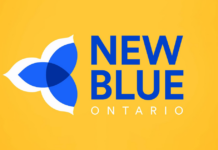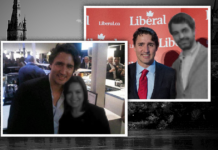Two city councillors in Victoria, BC are pushing the federal government to regulate a “safe supply” of hard drugs and decriminalize possession.
Councillors Marianne Alto and Sarah Potts recently put forward a motion that is set to be debated during a committee meeting this upcoming Thursday.
In their motion, the two councillors demand “that the Mayor, on behalf of the City of Victoria, writes to the federal Minister of Health calling on the Government of Canada to declare the overdose crisis a national public health emergency.”
The motion calls for a “pan-Canadian overdose action plan” that could potentially include “legal regulation of illicit drugs to ensure safe supply of pharmaceutical alternatives to toxic street drugs, and decriminalization for personal use.”
According to the latest national data on the opioid crisis, there have been exactly 17,602 deaths as a result of opioid toxicity since January 2016.
The COVID-related government-mandated lockdowns are exacerbating the problem. According to the Government of Canada, “1,628 apparent opioid toxicity deaths occurred between April and June 2020, representing the highest quarterly count since national surveillance began in 2016.”
Victoria joins several other major Canadian cities that have called for decriminalization in recent months.
Alto told True North that she has not been aware of any collaboration between local governments or councillors to push for decriminalization.
“I’m aware that some Saanich councillors are considering similar motions, but I’ve not been in contact with them,” said Alto. Saanich is a neighbouring community with Victoria.
On Tuesday, Montreal city councillors Marvin Rotrand and Christian Arsenault put forward a similar motion, asking the federal government to issue a legal exemption for simple drug possession.
Late last year, Vancouver city council unanimously voted through a motion asking Ottawa for the same thing. If granted, Vancouver will be the first city in North America to decriminalize possession of street drugs.
According to Alto, Vancouver has more options than Victoria when it comes to this matter and she doesn’t believe that decriminalization in Vancouver would set a precedent for other cities in BC.
“Vancouver has its own Charter, which allows it to take actions unavailable to other BC municipalities,” Alto told True North.
Despite broad support for decriminalization among public health advocates and local governments, some are warning that the effects on public safety are unclear.
According to a July 2020 report by the Canadian Association of Chiefs of Police (CACP) the impact decriminalization could have on communities remains murky.
“While research on decriminalization exists elsewhere, it has primarily been conducted through a public health lens rather than public safety. The potential impacts of decriminalizing all drugs on policing in Canada is unknown,” said the CACP.
For the time being, the federal government has been non-committal on the issue of decriminalization. Although the Liberals have proven to be in favour of providing cities like Vancouver with a controlled supply of drugs, Prime Minister Justin Trudeau has said that his government doesn’t consider decriminalization to be a fix for the opioid crisis.





















